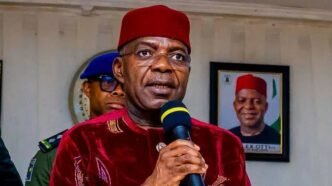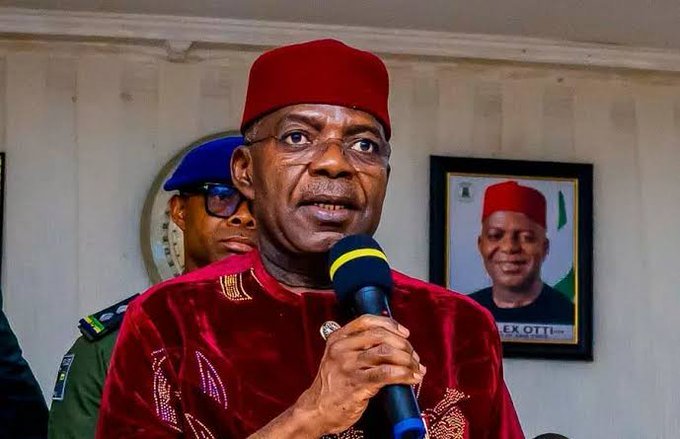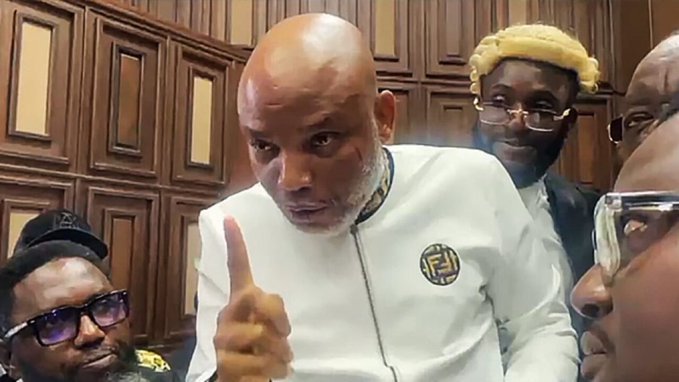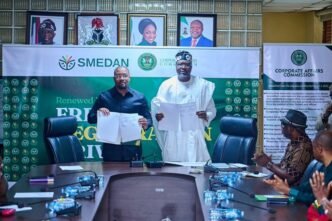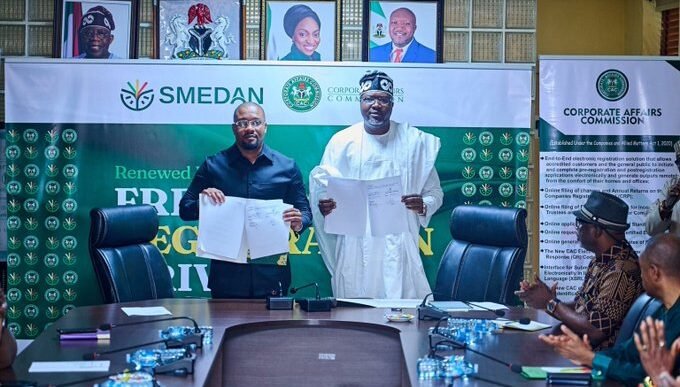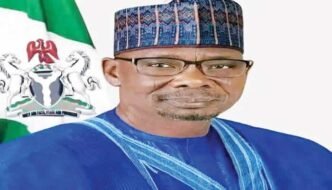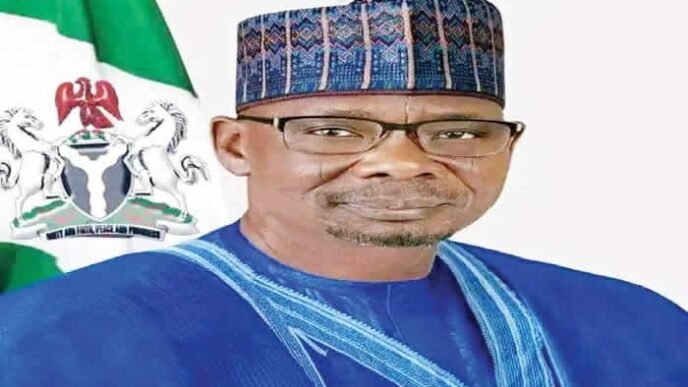Governor Alex Otti of Abia State has reaffirmed the commitment of South East governors to the plight of the detained leader of the Indigenous People of Biafra (IPOB), Mazi Nnamdi Kanu. Speaking amid growing concerns that regional leaders may have distanced themselves from the controversial separatist figure, Otti stressed that such perceptions are misplaced and do not reflect the reality of ongoing engagements behind the scenes.
The governor’s reassurance comes at a time when the detention of Nnamdi Kanu remains one of the most contentious political and legal issues in Nigeria. The matter continues to spark debates over human rights, security, the rule of law, and the broader question of Nigeria’s federal structure.
Otti’s Reassurance on Kanu
Governor Otti made it clear that the leadership of the South East has not neglected or abandoned Nnamdi Kanu, despite the long-drawn-out legal battle surrounding his detention by the federal government. According to him, regional governors are mindful of the implications of Kanu’s case, not only for the Igbo people but for national unity as a whole.
“The impression that the governors of the South East have washed their hands off the matter of Mazi Nnamdi Kanu is not correct. We remain engaged and are exploring channels that can yield positive results for his situation,” Otti was quoted as saying.
His comments appear designed to address growing discontent in parts of the South East where many supporters of IPOB believe political leaders have not done enough to press for Kanu’s release.
The Background of Nnamdi Kanu’s Detention
Nnamdi Kanu, a British-Nigerian political activist, rose to prominence as the leader of IPOB, a movement that advocates for the independence of Biafra from Nigeria. His fiery rhetoric, coupled with his ability to mobilize millions of followers across the South East and beyond, made him both a folk hero to many and a threat to state authorities.
Kanu was first arrested in 2015 and charged with treasonable felony. He was later granted bail in 2017 but fled the country after an alleged military raid on his residence in Abia State. In 2021, he was arrested abroad under controversial circumstances and repatriated to Nigeria, where he has remained in custody while facing trial.
The legal process has been protracted, with courts at different levels making conflicting pronouncements on his case. In 2022, the Court of Appeal discharged him of terrorism charges, but the federal government appealed the ruling, effectively keeping him in detention.
Growing Tensions in the South East
The prolonged detention of Nnamdi Kanu has fueled unrest in the South East, where weekly “sit-at-home” orders by IPOB factions have disrupted economic and social life. Although IPOB leadership has repeatedly disowned violent enforcers of the lockdowns, the situation has contributed to insecurity, economic decline, and strained relations between residents and security agencies.
Many observers believe that Kanu’s continued detention without a final resolution exacerbates the crisis. There are widespread calls from civil society groups, religious leaders, and traditional rulers for a political solution to the matter.
The Role of South East Governors
South East governors have often been criticized for what some see as their lukewarm or cautious approach to Kanu’s detention. IPOB loyalists argue that their leaders have not mounted enough pressure on the federal government. However, Otti’s reassurance suggests that efforts may be more discreet than they appear.
Governors from the region face a delicate balancing act. On one hand, they must respond to the yearnings of their people, many of whom view Kanu as a symbol of self-determination and justice. On the other, they are part of the Nigerian political establishment and must operate within the framework of federal authority and constitutional order.
Governor Otti’s statement underscores that while the governors may not always make public their interventions, there are behind-the-scenes engagements intended to address the matter constructively.
Reactions to Otti’s Statement
Otti’s clarification has drawn mixed reactions from different quarters.
- Supporters of IPOB: Many argue that they would like to see more visible and vocal interventions from the governors rather than reassurances. To them, silence or subtle diplomacy often looks like complicity.
- Political Analysts: Some political commentators welcome Otti’s intervention, noting that it helps bridge the gap between popular sentiment in the region and the cautious stance of elected officials.
- Civil Society Groups: Human rights advocates insist that the focus should remain on due process, justice, and dialogue rather than political maneuvering.
Implications for National Unity
The issue of Nnamdi Kanu and IPOB cannot be isolated from the larger question of Nigeria’s unity and governance. Calls for restructuring, devolution of powers, and greater equity in resource allocation have been central to debates about why separatist movements like IPOB find resonance among millions of Nigerians.
Governor Otti’s assurance therefore signals more than just concern for a detained activist; it highlights the enduring relevance of dialogue, inclusion, and political will in managing Nigeria’s diversity.
The Way Forward
There are growing calls for a political solution to Nnamdi Kanu’s case. Some believe that releasing him could calm tensions in the South East and pave the way for broader conversations about Nigeria’s future. Others argue that allowing Kanu to walk free without completing his trial could undermine the authority of the courts and embolden separatist movements.
Governor Otti’s remarks suggest that the South East governors may be working toward a compromise approach—one that balances justice, security, and reconciliation.
Experts recommend several possible steps:
- Strengthened Dialogue: Federal authorities and South East leaders should intensify dialogue to reach a consensus on resolving the matter.
- Judicial Clarity: The judiciary must expedite rulings to avoid the perception of indefinite detention.
- Community Engagement: Leaders should engage civil society and youth groups to address the grievances that fuel agitation.
- Political Will: Ultimately, the federal government’s political will is crucial in determining whether a negotiated settlement or strict legal process prevails.
Conclusion
Governor Alex Otti’s reassurance that South East governors have not abandoned Nnamdi Kanu adds a new dimension to the discourse surrounding the IPOB leader’s detention. While public perception has often leaned toward frustration and mistrust of political leaders in the region, Otti’s comments suggest that efforts are ongoing, albeit behind closed doors.
The road ahead remains uncertain, but one thing is clear: Nnamdi Kanu’s case is not just about an individual; it is about the future of the South East, the stability of Nigeria, and the ability of leaders at all levels to manage complex political realities.
As the nation watches closely, the balance between justice and reconciliation will determine not only Kanu’s fate but also the credibility of Nigeria’s democracy in addressing deep-seated grievances.

